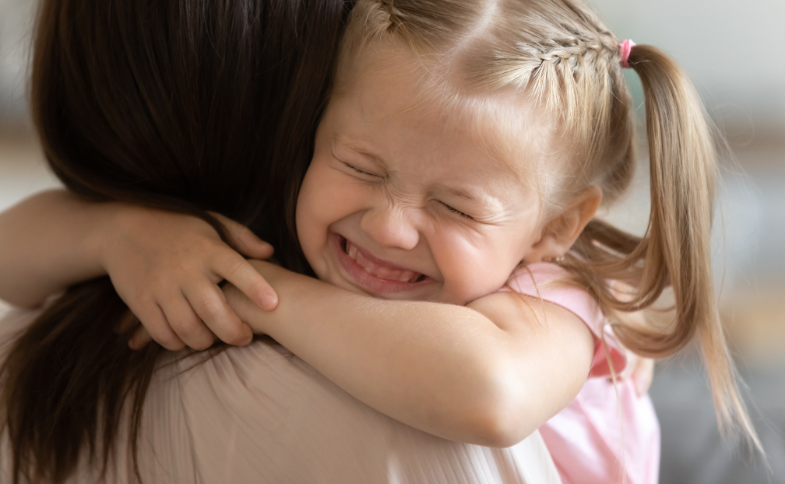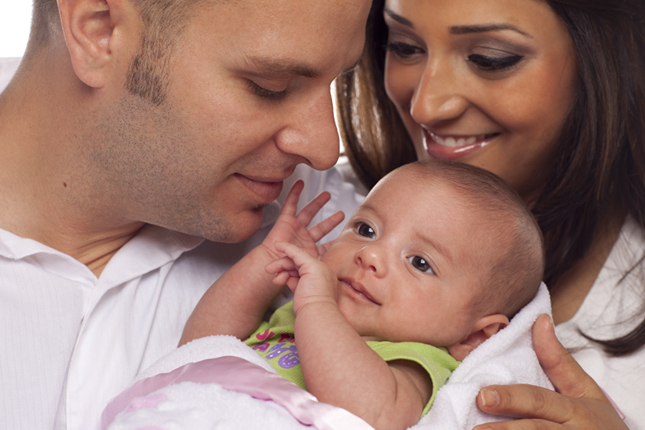How To Be A Mindful Parent
Being a parent is one of life's greatest joys. It is also one of life’s toughest challenges.
Over those first few years, when you are dealing with feeding and bathing and chores and endless activities, it is easy to get overwhelmed. A lot of parents lose touch with the present moment.
Luckily, that’s where mindful parenting comes in. By slowing down and being fully present, you can enrich your experience and strengthen your bond with your child.
In this guide, we’ll talk about exactly how to do this:
What does it mean to be a mindful parent?
Mindful parenting involves a commitment to being fully present and engaged with your child in every moment.
It is a practice of paying attention to your child with all your five senses. You accept them and the situation they are in without judgement. At the same time, you regulate your own emotions to avoid lashing out in anger.
Mindful parenting also involves communicating patiently and clearly with your child. An important element of it also entails letting go of guilt about the past and anxiety about the future.
The opposite of mindful parenting is to go through the day on autopilot. You are half-listening to your child as your mind wanders to work deadlines, chores, the past, and the future. With mindful parenting, you get to truly cherish each moment with your child.

Therefore, being a mindful parent means:
- Paying full attention to your child: This means being fully present with your child, both physically and mentally. It means making eye contact, listening attentively, and noticing the small details of their expressions and body language.
- Accepting your child and every moment without judgment: This means accepting your child for who they are, with all of their strengths and weaknesses. It also means accepting the present moment for what it is, without wishing for it to be different.
- Regulating your own emotions to avoid lashing out in anger: This is being aware of your own emotions and managing them in a healthy way. It means avoiding yelling, hitting, or saying things that you will regret.
- Communicating patiently with your child: This involves speaking to your child in an understanding way. It also means listening to your child and trying to understand their point of view.
- Letting go of guilt about the past and anxiety about the future: This means focusing on the present moment and enjoying the time you have with your child.
Like most other great things, mindful parenting takes time and effort. However, it is totally worth it. Being a mindful parent can help you connect more deeply with your child and create a more positive and nurturing environment.
You can incorporate practicing mindfulness as a parent into your daily routine through simple and effective techniques such as:
- Deep Breathing: When greeting your child after work or school, take a few deep breaths before engaging. This helps center yourself and transition from the busyness of the day to being fully present with your child.
- Mindful Bathing or Dressing: While bathing or dressing your child, resist the temptation to multi-task. Focus solely on your child, making eye contact, and using gentle and loving touches.
- Screen-Free Times: Set aside specific times each day to be screen-free for both you and your little one and engage with your child. This can include playing games, reading together, or simply talking and listening.
- Pause Before Reacting: When your child misbehaves, take a moment to pause and relax your body before reacting. This will help you respond with greater calm and understanding rather than impulsively.
- Active Listening: When your child wants to show you something, avoid interrupting. Make eye contact, listen attentively, and encourage them to share their thoughts and feelings.
- Mindful Eating: At mealtimes, slow down and chew your food slowly. Narrate what you're eating, describing the taste, texture, and aroma. This helps your child become more aware of their senses and enjoy the meal. Check out our episode on mindful eating for more information.
- Bedtime Stories: When reading bedtime stories, focus on the story and your child's reactions. Avoid distractions, and let your child know that you're fully present and engaged.

Modeling Mindfulness for Your Child
One of the biggest benefits of mindful parenting is the example it sets. Children are incredibly perceptive of their parents' state of mind. A mindful parent models crucial life skills like:
- Emotional self-regulation
- Delaying gratification
- Focusing and sustaining attention
- Savoring positive experiences
- Self-acceptance and compassion
Ultimately, mindful parenting helps children develop resilience. They gain the ability to recover from adversity and thrive in stressful situations. When you tune in to your child's emotions, you teach them it's okay to feel anxious, frustrated, or sad sometimes. You create a safe space for them to express turbulent feelings without judgment.
Children raised by mindful parents have been shown to have higher self-esteem, better academic performance, enhanced emotional intelligence, healthier relationships, and greater overall wellbeing. Those are gifts that will nurture your child for life.

Final Thoughts
With these tips and tricks, becoming a mindful parent should come easily to you. You will become a more present and attentive parent. Remember, mindfulness is a journey, not a destination, so be patient with yourself and enjoy the process of connecting more deeply with your child.
Finally, like any skill, mindfulness takes practice. It can feel unnatural at first to quiet that inner voice and simply be present. You may need to remind yourself dozens of times each day. The key it to simply be patient. Over time, it will become more automatic. You’ve got this!